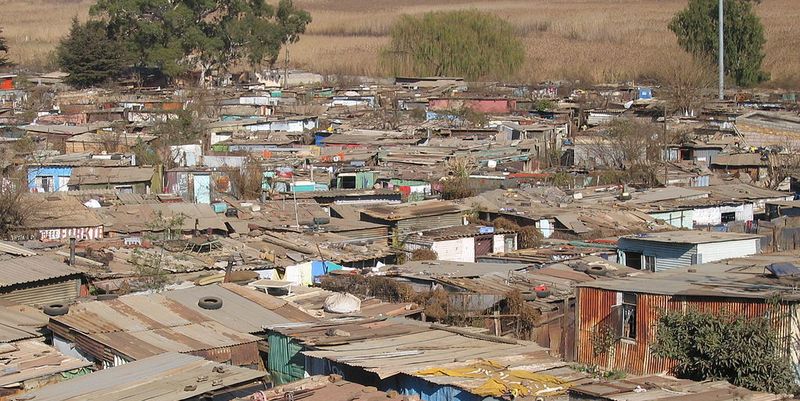Land Confiscation Is South Africa’s Nail in the Coffin

Is South Africa taking the first steps in becoming a basket case? In a troubling move, the South African National Assembly recently voted 241-83 to move forward a proposal to amend the constitution and allow for land expropriation without compensation.
The socialist-leaning African National Congress (ANC) and the (ironically named) Economic Freedom Fighters (EFF) parties are spearheading the initiative, claiming it will help address racial disparities that have supposedly lingered since the end of apartheid in 1994. Though not officially finalized, such an amendment to South Africa’s constitution could open the floodgates to massive property-rights violations and put the country on the sure path to economic decline.
South Africa increased its degree of economic freedom fresh off ending Apartheid, but since the 2000s the country has embarked on a more interventionist path, generating stagnation and increased unrest. Land expropriation would be the final straw that breaks the camel’s back, potentially setting off a complete collapse of the economy.
A Neighborly Warning
Such a move to expropriate lands without compensation is not unprecedented in Sub-Saharan Africa. One needn’t look farther than South Africa’s northern neighbor Zimbabwe to see what happens when a government encroaches upon private property.
Since independence in 1980, Zimbabwe has gone through a grueling decline that turned one of the region’s most promising countries into a complete basket case within a decade. The recently deposed Zimbabwean dictator Robert Mugabe initiated this meltdown by arbitrarily seizing white farms in 2000 to fix perceived injustices from the colonial era.
Chaos arrived in no time. Reports from the Commercial Farmers’ Union indicate that agricultural production plummeted by $12 billion from 2000 to 2009.
But the economic train wreck did not stop there. Like most Third-World countries that go on spending binges, Zimbabwean officials politicized the central bank and turned it into Mugabe’s personal printing press. Unsurprisingly, hyperinflation ensued, and Zimbabwe had to resort to dollarization after destroying the local currency.
With an economy completely in shambles, millions of Zimbabweans have left the country in search of better opportunities. Now that Mugabe is out of the picture after a recent military coup, time will tell if Zimbabwe opts for more market-oriented policies.
The Rational Alternative in Botswana
South Africans still can turn things around if they follow in the footsteps of their neighbor Botswana and use the free market as an engine for economic growth.
At the start of the 1960s, Botswana was one of Africa’s poorest countries, but that did not deter her from pursuing bold economic policies. Instead of playing the victim and turning to policies of vengeance, Botswana looked ahead and channeled the harmonious power of the market by upholding the rule of law, protecting property rights, and not relying on foreign aid.
Taking the road less traveled, Botswana harnessed her comparative advantage, diamond production, to become one of the fastest-growing economies in the world and arguably the most stable country in the entire continent.
South Africa’s Once-Free-Market Past
Curiously, the book Why Nations Fail demonstrates how the territory that would later become present-day South Africa enjoyed a respectable level of prosperity during the late 19th century.
Unlike the rest of the continent, South Africa was able to avoid the ill effects of slavery. Once Europeans of British and Dutch descent settled down, they adopted new technologies such as the plow and institutions like property rights.
In the brief time period that native tribes like the Xhosa embraced these practices, they were able to break free of traditional tribal hierarchies and enjoy significant levels of economic prosperity when compared to the rest of their African peers.
Sadly, the Boers (settlers of Dutch descent) turned to the heavy hand of the state to implement the exclusionary policy of Apartheid from 1948 to 1994. Once it was abolished, South Africa prospered for a brief period, but since the mid-2000s, the country has gone the wrong path by not keeping government spending and taxation in check.
South Africa is now at a critical juncture. Expropriation with a racial twist it will only revive the spirit of apartheid, but this time in reverse. Institutionalized racism, whether it be blacks against whites or whites against blacks, should remain in the dustbin of history. If South Africa wants to move forward as a society, she must adopt economic policies based on individual freedom instead.








